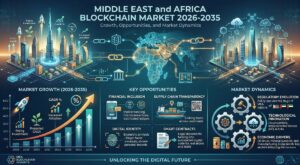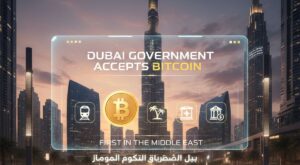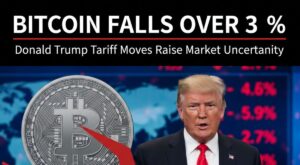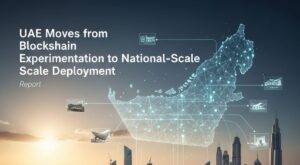The Middle East and Africa (MENA) region’s financial and banking professionals are more interested in blockchain technology than their counterparts in other areas, according to the most recent State of the Developer Nation report from SlashData. The Middle East and North Africa (MENA) authorities and stakeholders are working to provide the groundwork for blockchain-based enterprises, most notably by defining the rules for financial and contractual transactions. Banks are creating exchange systems driven by blockchain, and blockchain start-ups are emerging with creative blockchain solutions. These are all pointers to the fact that blockchain use cases in MENA is evolving and growing.
Uses Cases of Blockchain
Blockchain use cases in MENA and other parts of the world are numerous has a wide range of use cases. Some examples include:
Supply chain management
Blockchain can improve transparency and traceability in supply chains, making it easier to track the movement of goods and ensure they are ethically sourced. In 2020, Bahrain said that its ports would work with TradeLens, a blockchain-based shipping network.
Digital identity
Blockchain-based digital identity systems can provide secure and verifiable digital identities for individuals, making it easier for them to access services and participate in the economy. The UAE Ministry of Community Development (MOCD) has employed blockchain for the past few years to validate official certificates and other documents.
Land Registry
Blockchain can create tamper-proof land registries, which can help prevent disputes and fraud related to property ownership. Real estate is being tokenized as a form of commerce in the UAE. Landlords may now create tokens based on the blockchain that reflect the value of their ownership interests in certain properties. Many real estate firms and developers have also begun selling land and virtual properties as NFTs.
Also, The Department of Urban Planning and Municipalities (DPM) in Abu Dhabi unveiled a blockchain application for its land registry in 2019 to improve property records’ traceability, security, and openness while facilitating easy data archiving.
Banking and Finance
Blockchain can improve the efficiency and security of financial transactions, such as cross-border payments and remittances. There are many blockchain uses cases in MENA countries, including UAE, Turkey, Saudi Arabia, etc.
Healthcare
Blockchain-based electronic medical record (EMR) systems may be used to enhance the effectiveness and coordination of healthcare services while ensuring the confidentiality and privacy of patient data.
Medical records for patients may be stored on a worldwide platform using blockchain, removing the possibility of deletion or hacking. A decentralized medical information database might improve the distribution of humanitarian supplies in war-torn nations while providing the required knowledge to fight illness.
Transparency
While donors wish to help with humanitarian activities, they sometimes hesitate to do so out of concern about the abuse of funds since corruption is a persistent issue in many Middle Eastern countries, especially those experiencing war. Blockchain provides charitable organizations and contributors with a high degree of transparency about the distribution of their donations among the recipients. The use of technology is projected to increase contributions to a range of causes, including food and medical supplies, infrastructure, and education. This action could reduce poverty and raise living standards in disadvantaged areas.
Final Thoughts
Over the past few years, the use and adoption of blockchain in various MENA countries have increased. Many of these countries are using blockchain to make ground-breaking strides. It is expected that with the growing blockchain use cases in MENA, overall development in blockchain innovations will thrive.




























